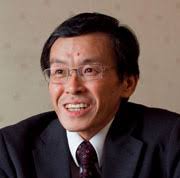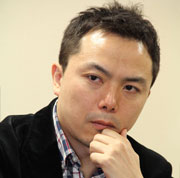. When ready, readers of Kishimi and Koga's book are invited to grow aware of their own reflections and projections.
It is like a modern take on Shunryu Suzuki's Zen Mind that incorporates what Fumitake Koga describes as "the shock value of Adlerian psychology." Alfred Adler was an Austrian medical doctor, psychotherapist, and founder of the school of "Individual Psychology." Adler viewed human beings as an individual whole. Along with Freud and Jung, Adler is viewed as one of three highly influential minds of psychology of the 19th century.
In a nutshell, the book unfolds through exchanges between a philosopher and student. The philosopher explains to his pupil how each human being exists to determine our own life, free from the limits of past experiences, doubts, and the expectations of others. The book invites readers reflect on what is deeply liberating, on what or whom allows us to reach inside ourselves to find the courage to change. It is set up to invite readers to see through self-created limitations other people seem to place on us. Ponder these five lessons that stand out:
1. Accept you cannot please everyone
To say yes to everything and everyone, is setting yourself up for a fall. To be true to yourself means accepting how you feel, expressing your truth and accepting everyone is not going to agree with you or see the world in the same way you do. Agree to disagree and life is then much simpler.
2. Discover all relationship problems mirror inner conflict
The view offered is that we create relationships as a means to get to know ourselves. This problems we think we have with others point to our unconscious resistance to accepting parts of our shadow.
3. See that seeking recognition is an ego trap
Instead of seeking recognition, pinpoint why you do not recognize yourself as you are, why you resists recognizing and celebrating what you have already achieved, or why you resist giving yourself recognition.
4. Discard other people's tasks
You are taught to live according to other people's views, desires, direction and percpetion of life pupose and experiences. Turns out, stepping back and recognizing who and what you truly live for is a thought-provoking and potentially life-transforming journey.
5. Trusting yourself and being confident are not the same
Feeling inferior or superior, making choices in life to reinforce related unconscious beliefs are stepping stones to growing aware of the bigger game that you are playing. No valid excuse exists for hiding from truth. You only begin to see through and dismantle smokescreens when the ego becomes a friend and teacher.
 Monday, March 26, 2018 at 6:30PM
Monday, March 26, 2018 at 6:30PM 
 greater fulfillment.
greater fulfillment. Everything can be viewed as a teacher with a message when we are open to it. Many people list favorite spiritual books and such lists are often changing.
Everything can be viewed as a teacher with a message when we are open to it. Many people list favorite spiritual books and such lists are often changing.








Reader Comments (5)
The gerbil of self-awareness is often caged in the wheel of Asininity.
We can all release our inner gerbil if we concentrate on the mindfulness paradox.
I am currently reading ' Who would Fardels bear?' which has built on the learning from this book.
The focus of this post is a gem that found me in an airport. Japanese culture and Zen koans invite us to see things from a different place. A shift in perspective can dramatically alter how we view ourselves and the world. Sense you would really appreciate this theme as presented in a post called Interview with Paul Dunn.
Thank you to the authors for putting this book out it is amazing.